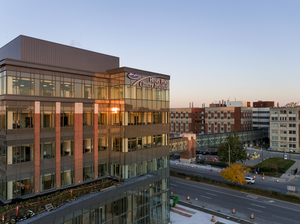Eating Well with Cancer
Are you asking yourself "What should I eat??" after receiving a cancer diagnosis? Our Henry Ford Cancer dietitians have created a personalized...
At the Henry Ford Liver Disease Center, our highly skilled team of liver and bile duct cancer experts treats hundreds of patients every year. As a one of the most sought after referral centers in the region, our goal is to deliver the most comprehensive, personalized care possible.
Bile duct cancer is cancer that originates in the bile ducts. The bile ducts are tubes that transport bile from the liver and gallbladder (which stores bile) to the small intestine. Bile is fluid that helps digest the fats in food and clears toxic substances from your body.
Scientists believe a link exists between the development of bile duct cancer and things that cause inflammation in the bile ducts. Risk factors for developing bile duct cancer include:
Because tumors within the bile duct prevent bile and bilirubin (yellow coloring created when red blood cells break down) from freely flowing from the liver to the intestine, the earliest signs of bile duct cancer involve abnormal liver function and may include:
At the Henry Ford Liver Disease Center, our liver specialists have teamed up with expert cancer specialists from Henry Ford Cancer, one of the most active cancer centers in Michigan.
We provide expert second opinions for even the most complex bile duct tumors. Our state-of-the-art diagnostic tools include:
Learn more about liver disease diagnosis at Henry Ford.
In our gastrointestinal tumor board, experts from all the specialties involved in your care meet weekly to design the best treatment plan for you. Our treatments include:
Learn more about our treatments at Henry Ford.
Are you asking yourself "What should I eat??" after receiving a cancer diagnosis? Our Henry Ford Cancer dietitians have created a personalized...
This twice monthly group, facilitated by a professional counselor/social worker, offers patients an opportunity to express their feelings and...
Henry Ford Cancer is excited to partner with Detroit health organization The Village Personal Training and Wellness to bring you Sound Bath and...
Join us for a supportive and nurturing yoga class designed to help you relax and unwind. This gentle practice will focus on calming breathwork...




We use cookies to improve your website experience. By using this site, you agree to our Terms of Use. Read our Internet Privacy Statement to learn what information we collect and how we use it.